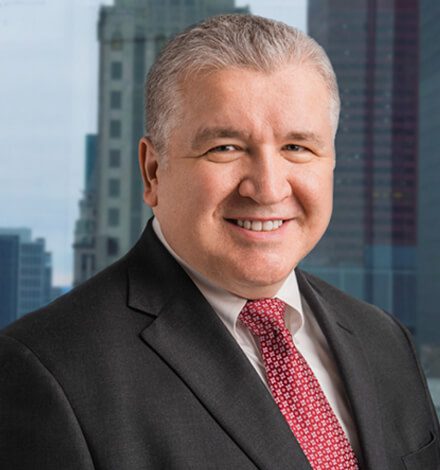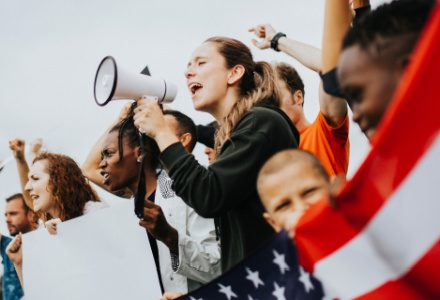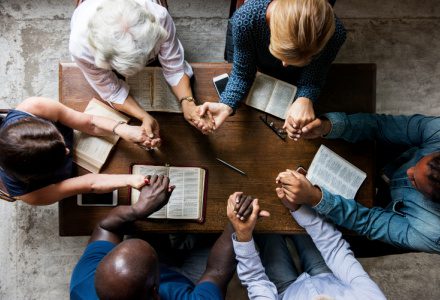Compelled Speech Takes A Hit At The Supreme Court
When we hear about efforts to prevent free speech, we typically think of censorship or the silencing of disfavored viewpoints. Over the last few years, there has been a veritable explosion of this type of censorship by the federal government and many state governments. We have learned, for example, about the efforts of the FBI and the White House to censor disfavored speech on Twitter. Recently, documents were made public showing how the White House demanded that Facebook censor various accounts and viewpoints. Further, a major case concerning the federal government’s censorship efforts is working its way through a federal appellate court. Overall, a wide-ranging effort by the federal government to censor certain viewpoints has been uncovered, including the FBI, the Department of Homeland Security, the State Department, and the CDC, among others.
Censorship, however, is not the only way governments assault freedom of speech. The freedom to say what you want also includes the right to refuse to say what you don’t believe. Freedom of speech cannot exist if the government can tell you what to say or control how you express yourself. Over the last 80 years, the Supreme Court has harshly treated efforts, even good faith efforts, by states to compel certain state-endorsed messages. In 1943, for example, the US was fighting WWII, and the Axis powers were still on their extended winning streak. In 1943, the Supreme Court held, nonetheless, that a school district could not compel children to recite the Pledge of Allegiance. In the 1950s, the issue was the demand for loyalty oaths and statements that you did not belong to the communist party. Today, the flashpoint for compelled speech issues arises from so-called hate speech laws.
The issue of compelled speech can manifest in a number of different ways because speech includes a wide range of conduct: verbal statements, written works, and physical expression (dance, clothing, protest, etc.). Given the breadth of conduct covered by the First Amendment, the sale of certain goods and services is also protected by the First Amendment. For example, the sale of newspapers and books is protected by the First Amendment, because their distribution is a form of speech. This would also cover art, speeches, political signs, and religious statements.
In 303 Creative LLC v. Elinis, the Supreme Court recently addressed whether a website designer’s refusal to create customized websites promoting same-sex marriages was protected under the First Amendment. Lori Smith, the owner of 303 Creative LLC, claimed that same-sex marriages were inconsistent with her strongly held religious beliefs and did not want to create customized websites for same-sex weddings. Smith did not refuse to design websites for gays and lesbians for purposes unrelated to a same-sex wedding.
The State of Colorado, however, had previously enacted a public accommodation law that made it unlawful for practically any business to discriminate against protected groups, including gays and lesbians, with respect to the sale of goods and services. There was no dispute that the customized wedding websites Smith wanted to sell were covered by Colorado’s public accommodation law. Nor did the State of Colorado dispute that Smith’s creation of customized websites for weddings constituted expressive conduct. Expressive conduct falls within the scope of the First Amendment.
The case came to the Supreme Court from the Tenth Circuit Court of Appeals that covers, among other states, Colorado. The Supreme Court stated that the “Tenth Circuit recognized that the coercive ‘[e]liminati[on] of dissenting ‘ideas’ about marriage constitutes Colorado’s ‘very purpose’ in seeking to apply its law to Ms. Smith.” Despite Colorado’s intention to suppress certain disfavored viewpoints, the Tenth Circuit held that Colorado had a compelling interest in protecting gay and lesbian couples from discrimination and further held that Colorado’s public accommodation law was appropriately tailored to address this issue. The Supreme Court rejected the 10th Circuit’s holding and reasoning.
In some ways, the Supreme Court’s decision in 303 Creatives is a continuation of a line of cases that harshly treats efforts by states to compel speech. There are, however, aspects of 303 Creatives that are important, particularly given the moment in which we are living. First, the Court reaffirmed that “freedom to think and speak is among our inalienable human rights.” This characterization is important, because it frames freedom of speech and thought as predating the First Amendment, which then recognizes a fundamental right instead of creating a right.
Second, the Court strongly reaffirmed that laws, no matter how salutary, do not trump the First Amendment. With respect to public accommodation laws, the Supreme Court stated that:
[T]his Court has also recognized that no public accommodations law is immune from the demands of the Constitution. In particular, this Court had held, public accommodations statutes can sweep too broadly when deployed to compel speech. . .When a state public accommodation law and the Constitution collide, there can be no question which must prevail.
A state certainly has an interest in combatting various forms of discrimination, but those efforts have to stay within the limits on government power set forth in the Constitution. In 303 Creatives, the Supreme Court sent a strong message to the lower courts, state governments, and the federal government that compelling speech is not a tool that a state or the federal government can use to combat discrimination.
Third, the Court’s decision refused to use the strict scrutiny test commonly used to evaluate the constitutionality of laws that infringe upon First Amendment rights. When evaluating laws that burden, but do not compel, speech, the Supreme Court will typically apply a strict scrutiny test that asks (a) is the law supported by a compelling state interest, and (b) is the law narrowly tailored to achieve that interest. This is a difficult and exacting test, but state federal laws can survive such strict scrutiny if properly drafted. With respect to compelled speech, the Supreme Court reaffirmed that categorical condemnation is the appropriate approach.
Fourth, the Supreme Court rejected the argument that First Amendment rights are diminished when an individual enters the marketplace in order to conduct business. The ability to pursue a livelihood is not a privilege granted by the government. While the states have broad powers when it comes to regulating various types of commercial conduct, they cannot condition an individual’s opening a business or continuing to run a business on the owner’s agreeing to a reduction of their First Amendment rights.
The Supreme Court did not address what constitutes “expressive” conduct with respect to the operation of a business. The Supreme Court noted that “determining what qualifies as expressive activity protected by the First Amendment can sometimes raise difficult questions.” The Court did not need to address this issue, because Colorado stipulated that Ms. Smith’s creation of custom websites constituted expressive conduct. Companies selling commodities, like gasoline or basic groceries, would almost certainly not be able to claim that the products they sell constitute expressive conduct. The reality is that most services provided by businesses do not qualify as expressive conduct. Those businesses, however, that provide services that are fundamentally expressive or that represent speech (a speech writer or playwright, for example) are entitled to protection under the First Amendment.
Finally, the Supreme Court did not strike down Colorado’s public accommodation law as being unconstitutional. Instead, the Supreme Court held that, as applied to Ms. Smith’s wedding website business, Colorado’s public accommodation law was unconstitutional. The other parts of Ms. Smith’s business remain subject to Colorado’s public accommodation law. This law protects many legitimate and important state interests. Indeed, in the large majority of cases, Colorado’s public accommodation law would not violate the First Amendment, and, therefore, it would not be appropriate to strike down the entire law.
This means that individuals and businesses within the State of Colorado remain subject to Colorado’s public accommodation law. One hopes that Colorado and other states will apply their public accommodation laws in a manner that does not violate the First Amendment. Individuals and businesses will have to bring their own challenges against these laws if they believe that the application of a public accommodation law to their actions or business is infringing their First Amendment rights.
The First Amendment and the freedom of speech it guarantees are foundational pillars of our democracy, providing every citizen with the invaluable right to voice their opinions without fear of governmental reprisal. In a society where our fundamental rights are increasingly under threat, it is essential to have a staunch defender in your corner. The Law Offices of George M. Sanders is that defender steadfastly committed to safeguarding your civil liberties against government infringement. If your First Amendment rights have been violated, reach out to the Law Offices of George M. Sanders today because your voice deserves to be heard, protected, and respected.
Previous Post
The New Orthodoxy: Compelling The Use of Pronouns
Public accommodation/antidiscrimination laws proliferated after the civil rights victories in the 1960s. These laws were designed to prevent businesses from refusing to serve individuals...
NEXT Post
Federal Appellate Court Doubts A Constitutional Right Exists For Transgender Hormone Therapy Puberty Blockers For Children
Over the last several years, we have witnessed an explosion of hospitals and clinics prescribing puberty blockers and hormones to children in order to...







